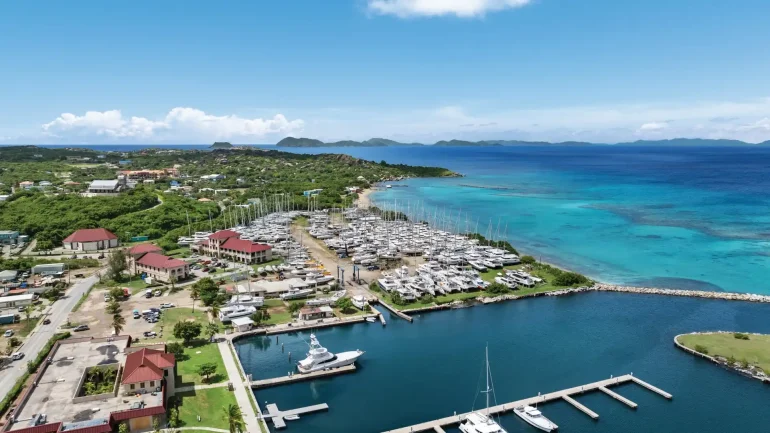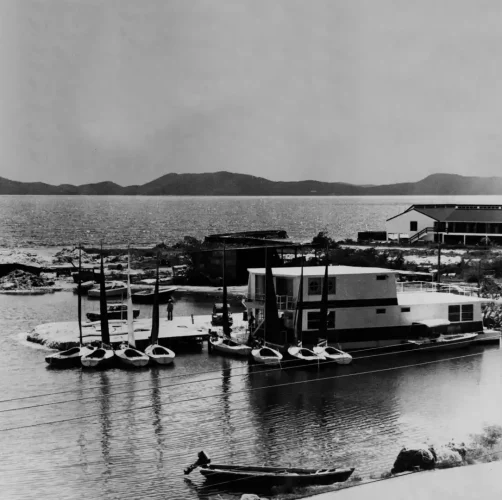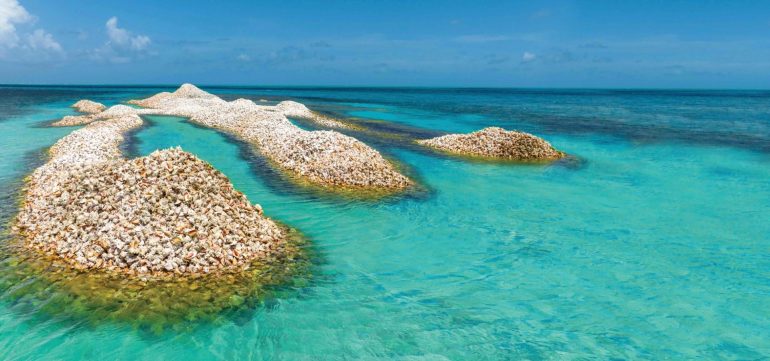Cracks in cistern walls, leaking roofs, lopsided doors, windows of unequal heights, backed up toilets, smelly septic, no water pressure, electrical panels above bathroom sinks and centred in living room walls, outlets located in showers, misaligned walls, floor tiles cut crooked to meet up with crooked corners and kitchen cabinets installed incorrectly. Yes, these are real-life examples and represent the quality of work being performed on the island by some so-called contractors.
Ask almost anyone who has been through the experience of building a house here and they will describe to you their nightmares, anxieties and enormous periods of stress when things were just not going the way the contractor said they would. Cost overruns, ever-extending deadlines and the ever-present fear of the contractor running out of money before the job was complete are just some of the headaches these homeowners experience.

For a contractor to become a contractor, at least in the USA, the individual must go through a rigorous training programme. Usually, but not always, the pre-contractor candidate will have received no less than four years of technical schooling before entering into an apprentice programme. This programme develops the candidate’s skills and reinforces the schooling with actual hands-on learning.
After several years of this training, the candidate will return to school in preparation for the actual test that will allow him or her to become a licensed contractor. The entire programme takes about six to 10 years to complete. It requires a lot of dedication and a lot of learning to become a licensed contractor.
How does one become a contractor here in the BVI? That is a good question and one that every homeowner should ask before signing on the dotted line. Building a home necessitates the use of a whole group of skilled contractors, not just one. There are masons, framers, electricians, plumbers, roofers and steel workers. All of these contractors need to be skilled, licensed, bonded and insured.
“What we have here in the BVI is a bit different than anywhere else that I have seen,” says Everton Henry, who has been a building contractor here and in the USA for the better part of three decades. “I have seen builders here mess up jobs something awful, largely due to inexperience. Someone will hire on a person who has general building skills and bam!—they are in the contracting business. Almost all the time the same few workers on the job site will perform all aspects of the job with just a basic knowledge under their belts. In the end the homeowner suffers from poor craftsmanship.”

But what about the inspections? “The inspection agencies are here to protect the customer, not the builder,” says Henry. “Sometimes it becomes turned around. But it is getting better and better every day. The government now requires all building contractors to take courses at the college. This is to help ensure quality and integrity.”
When a homeowner is interviewing a contractor, they need to ask a lot of questions, says Henry. They need to know about the contractor’s credentials, their experience, the identity of their sub-contractors and what other work they have performed on island. Everyone is a builder but not everyone knows how to build. Most builders learn from what they did on past jobs, but that work is not always performed according to code. “You see most builders, electricians and plumbers are just repeating what they did on the job before; they have no formal schooling or proper training, so you get what they learned from the job before and that may not always be right,” says Henry.
“When I build, I ask for structural inspections not only from the government, but also from a company like Systems Engineering. The government, an engineering company and I approve this steel work and forming, that way I know the foundation is safe. You cannot get better than that,” says Henry. “My electricians and plumbers are actual licensed contractors here in the BVI, with many years of experience and knowledge, but even with that I ask for second and sometimes third opinions. It’s best to always play it safe—after all, it is not my money, it is the owner’s, and I want to make one hundred per cent sure it is the right way and the way they want it.”
The cost for building a home is far greater here in the BVI than in the flatlands of Florida. There are many challenges with which a builder must contend. The steepness of the land, getting material onto the land and the travel time to and from play a part in pricing a job. A homeowner should be wary of any builder who presents a contract with a cost per square foot only and does not provide a breakdown of time and materials.

With the high-quality architects and engineers we have around us, a house plan will be so detailed that a builder should be able to take off the exact amount of material need to build. A good building contractor should be able to give you a detailed list of materials and related costs, a detailed list of the sub-contractors’ costs, and a detailed list of costs for other building- related needs such as pump trucks, excavators and material delivery. The homeowner can present the building plans to a quantity surveyor and have a detailed list of materials to cross-reference with the one presented by the builder. Most of the time the homeowner will select his or her own plumbing fixtures, lights, fans, windows, doors and kitchen cabinets. The builder should be notified of this and the cost for installing these items noted separately from the main building contract.
Retaining walls are not just for decoration; they are built to hold back soil. Sometimes this retaining wall will hold back mountainsides. The slope of the land, the height of the wall, the soil composition and the amount of water running down the hillside must be accounted for when designing a retaining wall. For all practical purposes and reasons listed, a retaining wall should be designed by a structural engineer and not by a building contractor. Just take a ride around the island after a long heavy rain and you will see firsthand how important it is to do it right. Not only your home, but also your safety, is at stake. Remember, we are not just in a hurricane-prone area, we are also sitting near a fault that can cause a severe earthquake at any given time. Homes and buildings need to be built to a Symmetric Zone 5 standard and a Category 4 hurricane standard.
The governing bodies here in the BVI that represent code enforcement are said to follow the strict standards set by the USA building codes. These include building, electrical, plumbing, and structural and land development. All electrical must follow the National Electrical Code, all plumbing must follow the National Plumbing Code, foundations and retaining walls must follow the prints set by the structural engineer, and the list goes on. If there is any doubt about the inspection that was or is being performed on your home, you can very easily go online and ask any question and receive an answer that will be backed up by an article from the code book. You will be able to print off the answer received along with its factual article from current code books and can present it to the inspection agency here for clarity. If you are still in doubt, you can call
in a private company to review the area of concern. Considering the cost of building here in the BVI, you may want to weigh the small cost of a second or sometimes third look at the job being performed against what the cost will be to do it over again, the right way.
Do not worry about upsetting the contractor; if they are performing their trade in accordance with the code, they should be happy to have their work inspected. In the end, frequent inspections and the careful selection of a quality contractor can help save the homeowner a mountain of stress and a heap of money.





